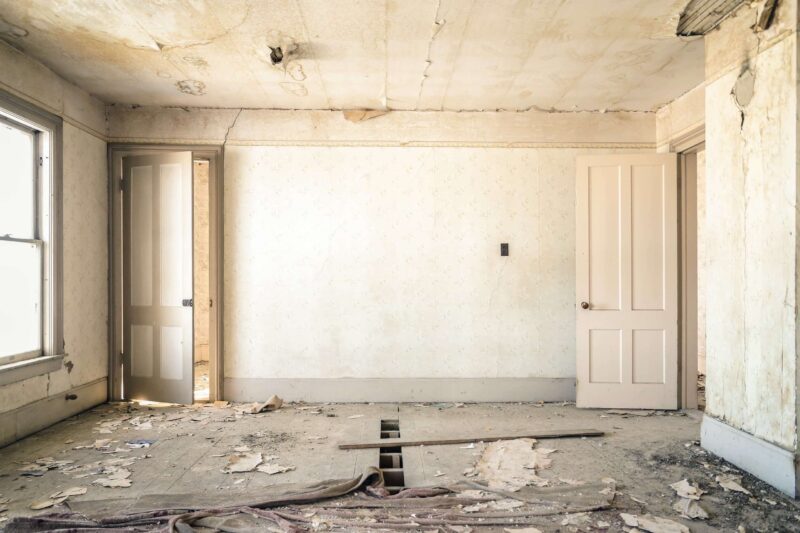10 Common Insurance Mistakes
Are you making mistakes when it comes to insuring your property? Let’s take a look at the ten most common mistakes that people make.
Whether you’re a first-time landlord or you’ve been in this game for a while, you’ll know that owning and renting out a property comes with its fair share of responsibilities.
Home Emergency Insurance for £130
- ✓ Covered up to £1,000 per emergency
- ✓ £250 for overnight accomodation
- ✓ Call out, labour & parts included
One such responsibility is insurance.
Not the most exciting or glamorous of topics, we grant you, but essential nonetheless. And what’s even more essential is making sure you’re armed with all the facts and have the correct cover in place, so that if anything should happen to your property, it isn’t the end of the world – your tenants are safe, you’re covered and life can go on as before.
So, whether this is your first rodeo or you’re reviewing your cover, take a look at our handy checklist to make sure you’ve considered all your options before you commit to a new policy.
10 most common insurance mistakes that landlord’s can make
Before we kick off with these (and this may sound obvious, but bear with us), we’d like to pre-cursor all of these with: don’t just go for the cheapest option.
Ok now that’s out the way, let’s get started…
1. Under-insuring your property/ies
At a glance, this is a way to save money. Except it isn’t. It really isn’t.

So many landlords go down this route because less coverage is cheaper. But taking out a policy that just about covers your mortgage (for example), will only ever have a short-term benefit to you, and frankly isn’t worth the paper it’s written on.
You need to have the level of cover that will mean if the very worst should happen (which we hope it never does, of course), your entire home could be rebuilt. You want to make sure that your Home Emergency Insurance covers any emergencies your tenant might face, so that you can act quickly to make sure they are safe and comfortable.
2. Forgetting about accidental damage cover
Have you considered accidental damage cover? You should, especially now as claims for accidental damage goes up during the school holidays.

This is for when you or one of your tenants – or, in fact, anyone – unintentionally or unexpectedly damages your building or belongings.
Accidental damage is one of the most common reasons for a claim on a home insurance policy. Yet less than one in five home insurance policies automatically cover you for accidental damage.
Some will only include it if you pay more – and depending on the value of your property, this could prove to be an extremely worthwhile investment.
It’s also worth reminding your tenants to look into Tenants Contents Insurance, as this will protect their possessions and Mashroom’s policy protects possessions inside and outside the home.
3. Wrongly valuing your property for building insurance
Building Insurance needs to fully reflect the cost of rebuilding your house from the ground up. That includes cleaning away any rubble, drawing up plans, a complete rebuild and all the reinstallation work.

If your property is listed, old or out of the ordinary in any way, then this needs to be taken into consideration too.
If in doubt, there is a calculator on the Association of British Insurers website or you can give our dedicated sales team a call to find out more and answer any questions you may have.
It is worth noting that the market value of your home is not a guide to the building sum insured you need.
4. Forgetting about discounts and/or grants
These change all the time (especially recently), but you may well be eligible for a grant (from your local council or government) or discount from your insurer, or maybe even both.
Examples of these that have run in the past have included installing new smoke detectors in your home or bundling your auto and home insurance coverage with the same agent.
If you aren’t looking into the discounts available to you, you could end up paying much more for your homeowner’s insurance policy than you need to – and nobody wants that!
5. Not tailoring your coverage
Your property is as unique as you are – no two are the same. So why should your cover be any different? Find a policy that works around your property/ies, your needs and your priorities – not the other way around.
As just one example, a standard, off-the-shelf policy may not include flood damage, for example – and depending on where the house is, that could be extremely important.
As a landlord, you should also always consider getting Rent Guarantee Insurance. There’s been a big spike in the popularity of RGI after the pandemic, when many landlords learnt the hard way about needing RGI.
6. Subletting without letting your insurer know
Nearly half of tenants who sublet the place they’re renting to another person don’t tell their landlord. So make sure this isn’t happening in your property, as it will mean your cover doesn’t stand.
Renting out a room without your permission can void your tenancy agreement if it’s in breach of the terms, but more importantly for you, it can also void your insurance and your mortgage agreement.
7. Leaving doors and windows open
If your burglar alarm isn’t on, your CCTV doesn’t work, or windows and doors are left open, your insurance may not be worth the paper it’s written on.
Most home insurance policies will have a clause that states they will only pay out for a burglary if your home was entered using violence or excessive force, and the security measures you originally told them about were all in place. So you need to make sure that any CCTV and burglar alarms are in full working order and that your tenants are using them.
This includes the types and condition of any locks you originally stated were being used. Some policies even require the burglar alarm to be on when people are sleeping, so check the small print here and make your tenants aware of all the applicable clauses.
8. Delaying building repairs
As a landlord, you are responsible for fixing any problems with the building. So if you let that leak continue, or don’t replace a roof tile or clear clogged gutters, and more serious and expensive damage follows, your insurer may reject your claim, on the basis that you were aware of it, but let the problem get worse.
9. Not being aware of what is/isn’t covered
A lot of unsuccessful claims come about because people aren’t fully clued-up on what their policy does and doesn’t cover (known as exclusions).

Policy exclusions will be listed in your documentation, so it’s important to read all the documents your insurer supplies, to make sure you’ve got the right level of cover.
A good example of this is Life Insurance – not all policies automatically include critical illness cover. Don’t assume what it’s in your policy – make sure you know it inside out!
The insurer has an obligation to provide this information to you in an easy-to-understand format. So if you don’t understand it, ask.
10. Your home being unoccupied without your insurer knowing
In some cases, if you/your tenants leave your property unoccupied for more than 30 or 60 days in a row, your insurer may not pay out on your claim.
This is because the risk of damage, leaks, vandalism and theft increases when nobody’s there. And when damage goes unnoticed for a prolonged period of time, it can cost more to fix.
Whew, that’s a lot to take in, we know! But it’s really important to be on top of your insurance – or you could find yourself out of pocket in the future!